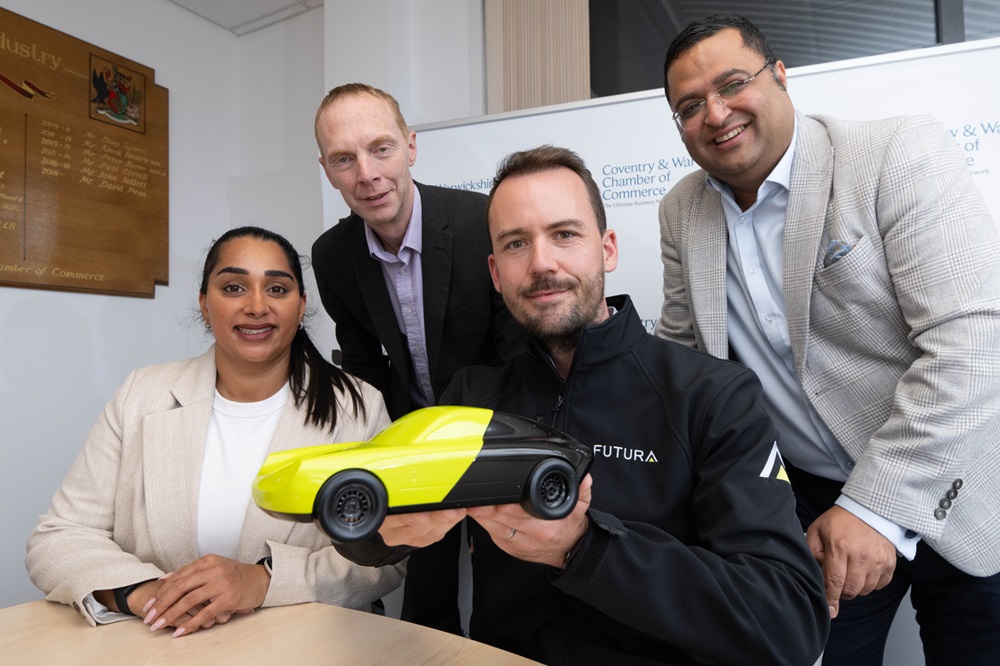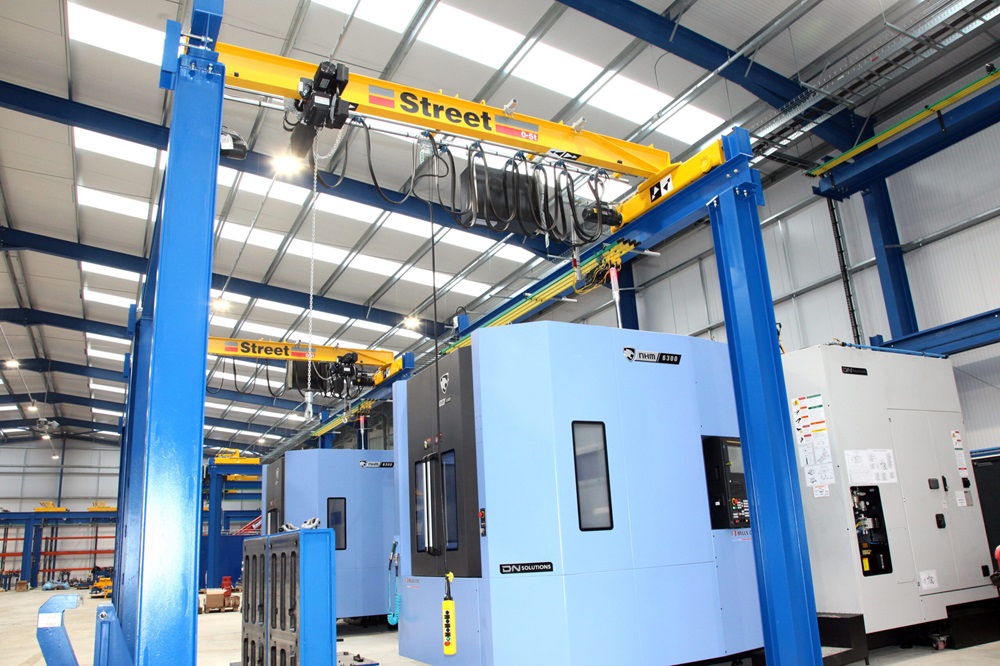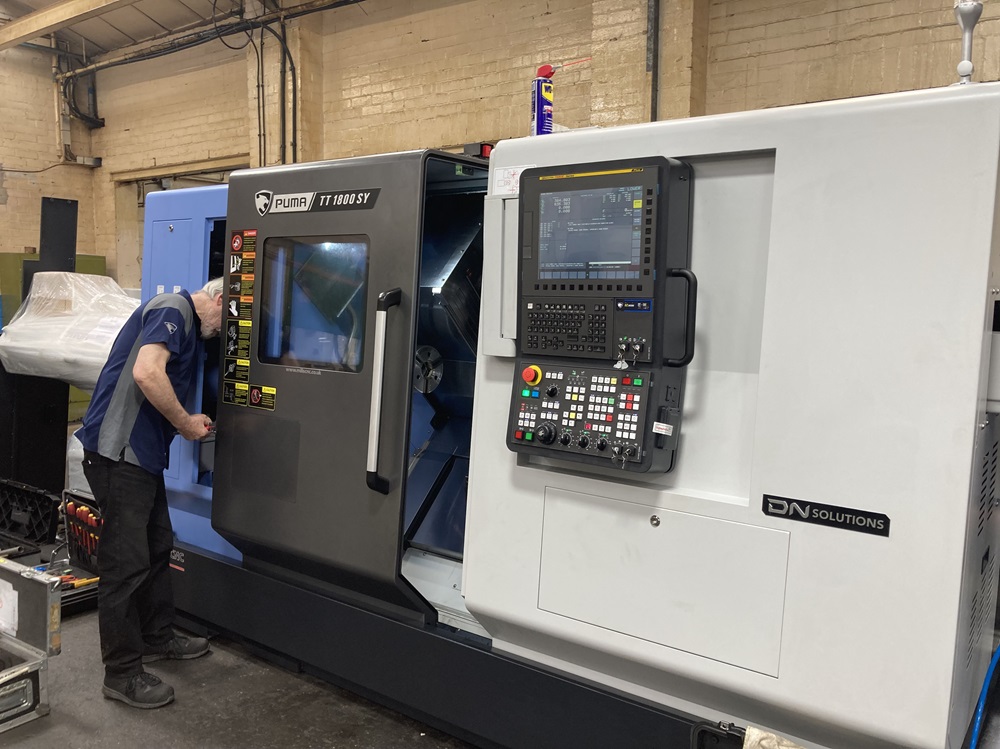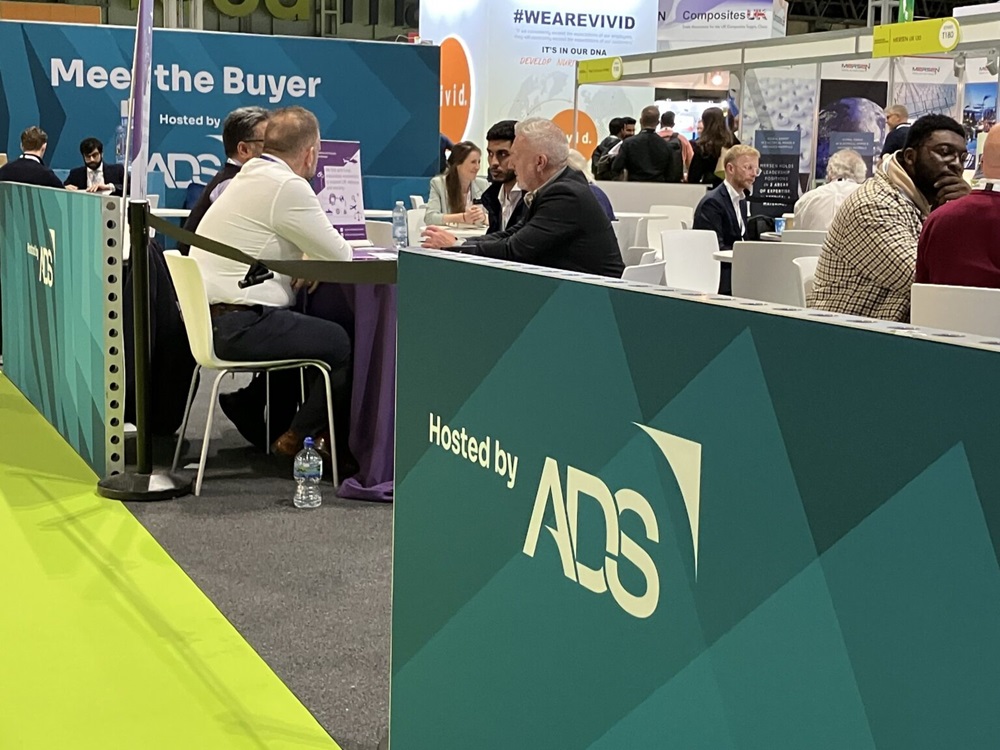Standish Engineering Co (SEC), a family-owned engineering business celebrating its 75th anniversary this year, is a widely-respected and successful precision subcontract specialist committed to continuous improvement. To maintain its competitive edge, the company regularly invests in advanced machine tools and ancillary technologies.
Since the 1990s SEC has developed strong relationships with Mills CNC and, over the past 30 years, has acquired a number of its Daewoo, Doosan and DN Solutions machines. The most recent are a twin-table vertical machining centre and a twin-spindle, twin-turret turning centre. These machines, like all 15 CNC machines SEC has in its machine shop, are helping the company meet evolving customer demands quickly, efficiently and profitably.
The machines, a VC 430 and a TT 1800SY, arrived at the company’s 1486 m² facility in May and October 2024 respectively. They are now busy machining a range of high-precision, complex parts for customers in the rail, oil and gas, automotive, aerospace, and food processing sectors, to name but a few.
While all sectors are important to SEC, business from the international rail and oil and gas sectors have become increasingly significant to SEC’s continuing growth and success. Indeed, it was these ‘critical infrastructure’ sectors, which back in 2020/21 proved to be more than instrumental in helping the company negotiate its way through the pandemic and subsequent lockdowns.
However, despite their importance, a key consideration for the company has always been to minimise potential risk by not being overly reliant on one or two sectors and, as such, SEC is always looking to diversify its customer base and enter new markets. The company’s regular investment in advanced, flexible and multi-tasking machine tools and ancillary technologies help SEC become more agile and adaptable, and better able to implement and capitalise on its diversification strategies.
Parts machined by SEC feature tight geometric tolerances and super-fine surface requirements. The company can deliver small, medium or large batch sizes, depending on customer requirements. It is able to machine components from solid billet and bar, as well as from castings and forgings. Materials include aluminium, engineering plastics, mild steel and stainless steels, as well as numerous exotic and difficult-to-machine alloys that include Monel, Hastelloy, Inconel, Duplex and Super Duplex.
SEC, established in 1950 and currently employing 38 members of staff, is a company committed to continuous improvement and, as such, regularly invests in its people, plant and equipment. To improve its services to customers, SEC regularly monitors and benchmarks its performance against company KPIs to ensure that it consistently meets, and in many instances exceeds, the high standards it sets for itself regarding quality, efficiency, value and customer satisfaction.
A company-wide mantra that permeates throughout the whole organisation is that the ‘customer is king’. This business philosophy provides a clear, unequivocal focus that has resulted in improved customer loyalty and the ability to win machining contracts from new customers.
Says Nick Kindon, SEC’s managing director: “We’re constantly adapting the business to meet customer needs more effectively, and always strive to be the best version of ourselves.”
Nowhere is this more evident than in the company’s well-resourced machine shop where frequent and planned investment in new capital equipment – like advanced machine tools, inspection solutions and laser marking equipment – help the company improve its machining capacity, production capabilities and machining processes.
The new VC 430 has replaced an older Daewoo ACE vertical machining centre acquired by SEC in the late 1990s.
“Although the ACE machine has served us well over the years, it wasn’t as reliable as it used to be,” says Kindon. “Rather than jeopardise our machining performance with a potentially unreliable machine, and to avoid unforeseen production bottlenecks and scheduling issues caused by downtime, we decided to replace the ACE with a new machine.
He adds: “Initially, we were looking to replace the machine with a five-axis machining centre. However, having done our research, we realised that continuing with a new twin-pallet vertical would – from a cost, machine availability, staff familiarity, process knowledge and integration perspective – be the best solution.”
SEC approached Mills CNC to discuss its requirements and received an introduction to the VC 430 machine series. The DN Solutions VC 430 has a twin-pallet configuration, enabling continuous machining of large and/or multiple smaller parts in a single set-up. It has a rigid build and features an 18.5 kW/10,000 rpm/167.6 Nm spindle, two automatic pallets (712 x 490 mm) with a 300 kg maximum load, up to 40m/min rapid traverse rates on its X, Y and Z axes, roller guideways and a fast 30-postion automatic tool changer. The machine supplied to SEC also featured through-spindle coolant capability (20 bar) and an MH500 chip conveyor.
Says Kindon: “The new VC 430 has slotted in seamlessly and, as expected, is making a significant contribution to our productivity and performance. We’re looking to replace our last two remaining ACE twin-pallet verticals in the near future, and it looks likely that we’ll be approaching Mills in the next few months to discuss trading them in for a couple of new VC 430 machines.”
The new TT 1800SY replaced an older TT machine that was acquired by the company in 2007.
As an 8” chuck/65 mm bar capacity machine, the TT 1800SY is a productivity powerhouse designed for the fast processing of small parts. It features twin-opposing spindles (22 kW/,000 rpm), an upper and a lower turret (24-position each) with 5000rpm driven tooling capabilities, and a ±50 mm Y axis. The machine supplied to SEC also included a MF500 swarf conveyor, a CRS66 collet chuck and, to ensure continuous production, a HydraFeed MultiFeed 65 bar loader.
“Our first TT 1800SY served us well over the past 17 years, and could operate as a self-contained, automated manufacturing cell,” explains Kindon. “We relied on its accuracy, flexibility and speed, so when the machine required upgrading it was natural that we approached Mills to talk about their next-generation TT1800SY series.
He adds: “Our new TT 1800SY has only just been installed, but we have high expectations concerning its performance.”
SEC clearly continues to invest in advanced machine tools from Mills CNC, with the latest VC 430 and TT 1800SY machines serving as cases in point.
“We like Mills CNC”, concludes Kindon. “They understand our business and are approachable and transparent. The depth and breadth of their machine tool portfolio is second to none, and the fact that they keep many models in stock ensures quick delivery and installation. This, in addition to Mills’ technical knowledge, logistical expertise and responsive after-sales service and support operations, puts them in the box seat whenever we are looking to invest in new machines.”
More information www.millscnc.co.uk



















